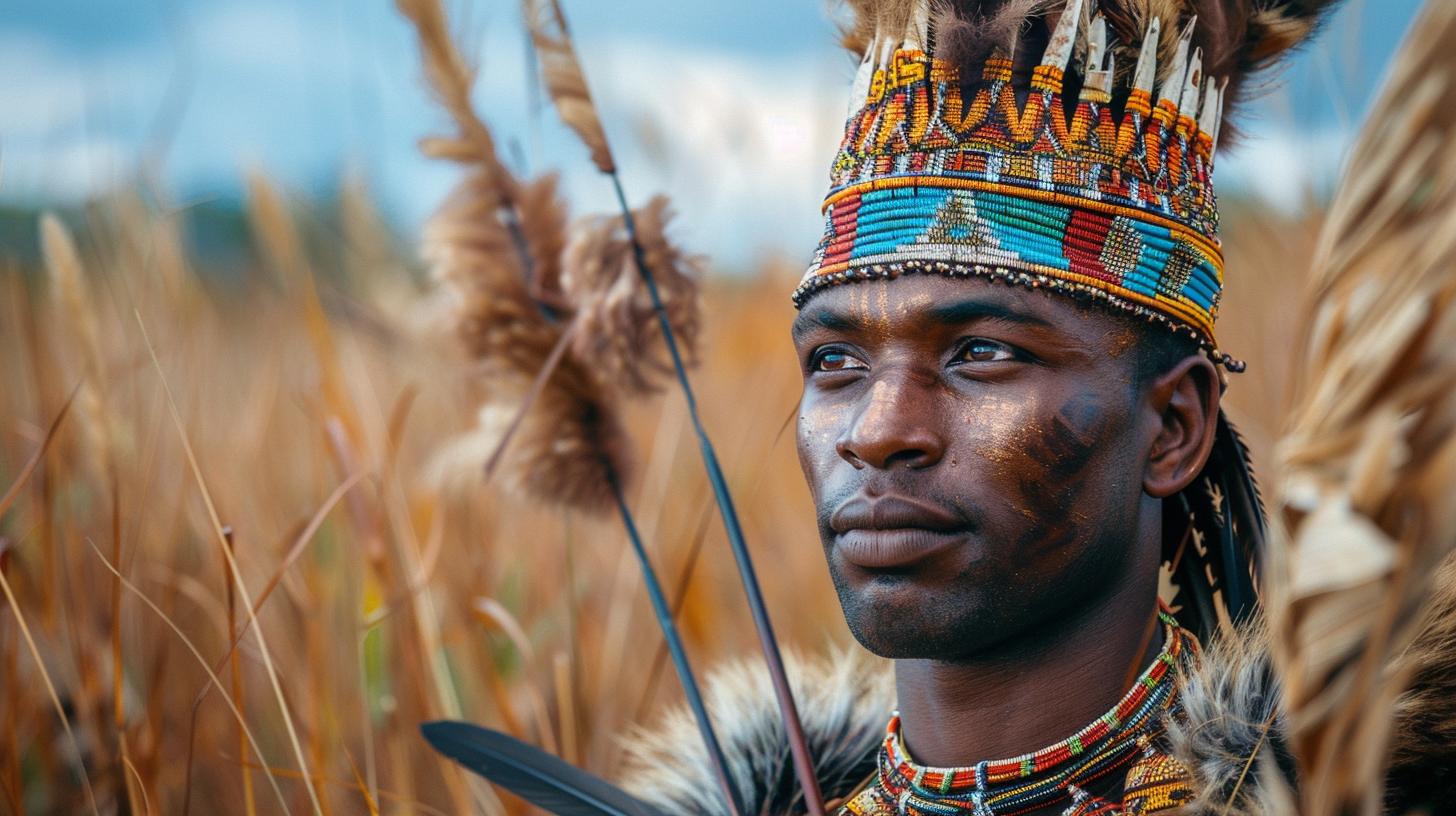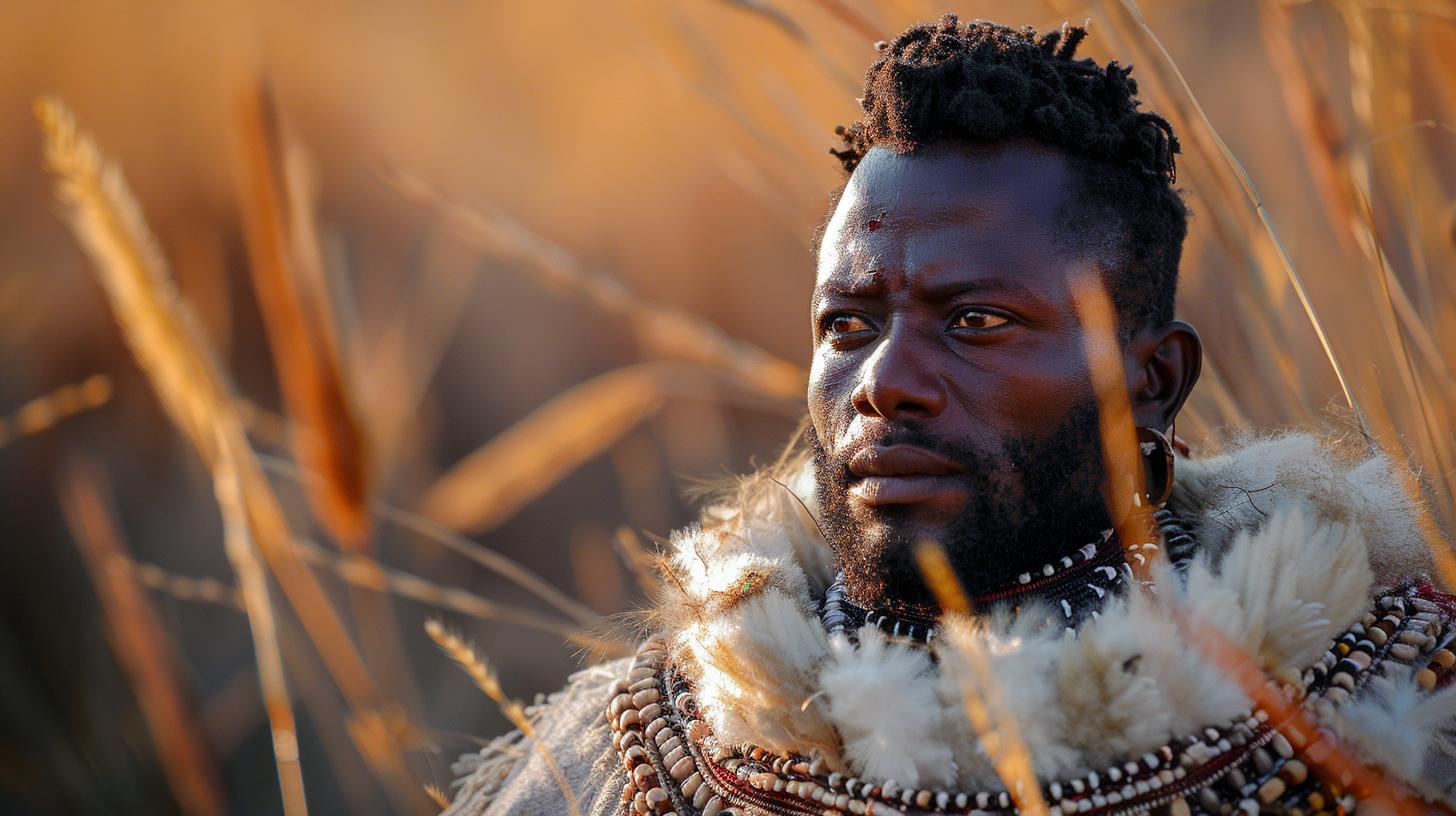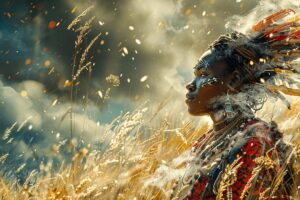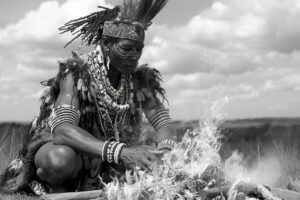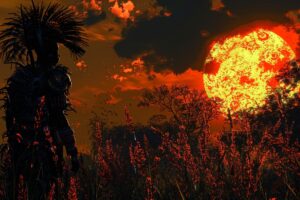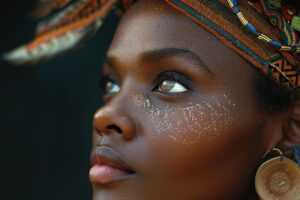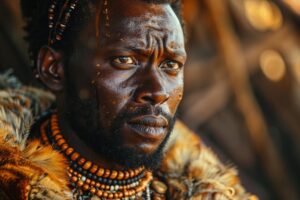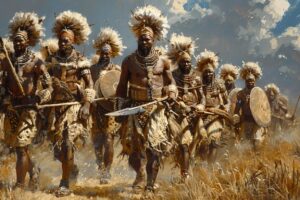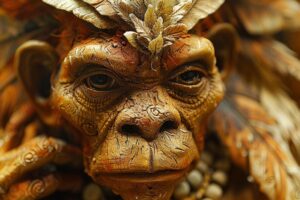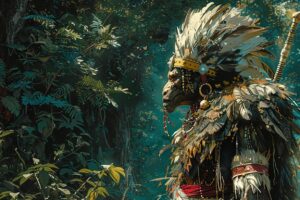Unkulunkulu Creation Story And Myth: Zulu Deity’s Origins Explained
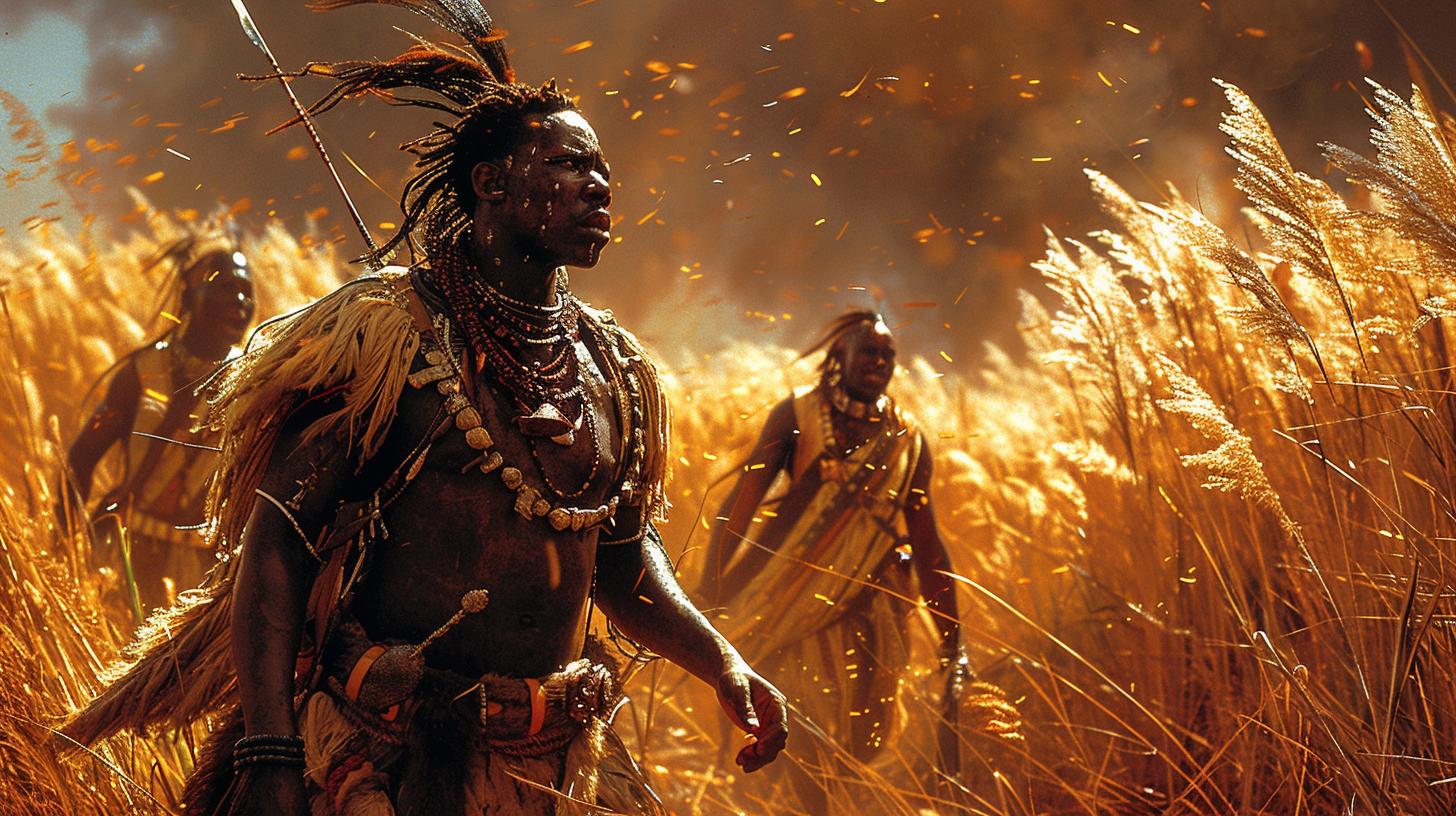
The Unkulunkulu creation story and myth is central to Zulu tradition, portraying Unkulunkulu as the creator figure. According to Zulu beliefs, Unkulunkulu created humans, animals, and landscapes, shaping the cultural and spiritual foundations of Zulu society.
Amatongo ancestors are revered and traditional practices, such as sacrificial offerings, persist in modern Zulu culture, showcasing the enduring significance of Unkulunkulu in Zulu mythology and identity.
Origins of Unkulunkulu
The origins of Unkulunkulu, the revered figure in Zulu tradition, trace back to the mythological beliefs of the Zulu people.
Unkulunkulu is seen as the creator who shaped not only humanity but also the diverse spectrum of living beings and landscapes that define the Zulu world.
Mythology Behind Unkulunkulu
Exploring the mythology behind Unkulunkulu offers insight into the intricate beliefs and cultural significance attributed to this significant deity-like figure in Zulu tradition. Through stories and legends, Unkulunkulu embodies the essence of creation and divine influence within the Zulu worldview.
Unkulunkulu’s Creation Story
The creation story of Unkulunkulu delves into the mythical narrative of how this primal being shaped existence as known to the Zulu people, showcasing the power and ingenuity attributed to the origins of humanity and the natural world.
Zulu Deity Unkulunkulu
The concept of Unkulunkulu as a deity within Zulu mythology highlights the reverence and respect accorded to this primal figure, symbolizing the interconnectedness between the divine, the earthly realm, and the spiritual beliefs embedded in Zulu culture.
Unkulunkulu as the First Man
Viewed as the first man in Zulu tradition, Unkulunkulu embodies the essence of human existence and serves as a foundational figure in the ancestral lineage and cultural heritage of the Zulu people.
Unkulunkulu’s Creation of Humanity
In Zulu mythology, the creation of humanity is a pivotal aspect tied to the figure of Unkulunkulu, the esteemed deity who shaped the first men and women. The story of Unkulunkulu’s involvement in the emergence of humans highlights the intricate connection between the divine and mortal realms in Zulu cosmology.
The Story of the Camaleon and the Lizard
According to Zulu tradition, the narrative of the Camaleon and the Lizard elucidates the origin of mortality in humans. Unkulunkulu’s decision on whether humans should die or not is embodied in this ancient tale, showcasing the profound impact of his choices on the fate of humanity.
Creation of Humans and the Role of Unkulunkulu
Unkulunkulu’s role as the creator of humans is central to Zulu beliefs, emphasizing the divine authority he holds over the existence of humanity. His actions in shaping the first humans underscore the foundational bond between the Zulu people and their mythical progenitor.
Unkulunkulu’s Influence on Zulu Culture
The enduring influence of Unkulunkulu on Zulu culture is evident in the spiritual practices, customs, and beliefs that continue to be upheld by the Zulu community. His legacy transcends generations, shaping the values and traditions that define Zulu identity.
Evolution of Unkulunkulu’s Role Over Time
Over the course of history, the role of Unkulunkulu in Zulu mythology has evolved, adapting to changing societal contexts and interpretations. Despite these shifts, the essence of Unkulunkulu’s creation of humanity remains a cornerstone of Zulu cosmogony, reflecting the enduring significance of this mythical origin story.
Zulu Beliefs and Practices
Zulu beliefs and practices are deeply rooted in ancestral worship and cultural traditions that have been passed down through generations. These beliefs play a significant role in shaping the spiritual and social fabric of Zulu society.
Reverence Towards Amatongo
The Zulu people hold a profound respect for their ancestors, known as Amatongo, who are believed to possess the power to influence the lives of their descendants. Worship of Amatongo is a central aspect of Zulu religious practices.
Worship of Ancestors in Zulu Religion
Ancestor worship is a fundamental part of Zulu spirituality, with rituals and ceremonies dedicated to honoring and appeasing the spirits of the departed. By paying homage to their ancestors, the Zulu seek guidance, protection, and blessings for their present lives.
Sacrifices to Amadhlozi
In Zulu tradition, offerings and sacrifices are made to the ancestral spirits, known as Amadhlozi, to show respect and gratitude for their guidance and blessings. These rituals are performed with great reverence and are believed to strengthen the connection between the living and the dead.
Influence of Traditional Beliefs in Modern Zulu Society
Despite modern influences and changes, Zulu cultural practices and beliefs continue to hold significant importance in contemporary society. The traditions of honoring ancestors and performing rituals have been preserved and adapted to coexist with the evolving world.
Persistence of Zulu Cultural Practices
Zulu cultural heritage is maintained through the preservation of traditional practices and customs that have been integral to the identity of the Zulu people for centuries. These practices serve as a connection to the past and a source of pride and belonging for the Zulu community.
Cultural Significance of Unkulunkulu
The cultural significance of Unkulunkulu in Zulu mythology encompasses a deep spiritual connection with ancestral heritage and the preservation of Zulu cultural identity over time. Unkulunkulu, as the creator figure, holds a unique role in shaping the spiritual beliefs and practices of the Zulu people.
Spiritual Connection with Ancestral Heritage
The reverence towards Unkulunkulu reflects the Zulu people’s profound respect for their ancestral lineage and the wisdom passed down through generations. The presence of Unkulunkulu in Zulu mythology symbolizes the interconnectedness between the past, present, and future.
Maintaining Zulu Cultural Heritage
Zulu cultural practices, rooted in the teachings of Unkulunkulu, serve as a cornerstone for preserving the rich heritage of the Zulu people. The rituals and traditions associated with Unkulunkulu are integral to maintaining the cultural identity and collective memory of the Zulu community.
Legacy of Unkulunkulu in Zulu Mythology
The legacy of Unkulunkulu within Zulu mythology has transcended generations, leaving a profound impact on Zulu culture and spiritual beliefs. Through stories and traditions, the figure of Unkulunkulu continues to resonate with the Zulu people, shaping their identity and worldview.
Continuing Impact of Unkulunkulu’s Story
- Unkulunkulu’s narrative remains a foundational element in Zulu oral tradition, serving as a source of cultural pride and connection to ancestral roots.
- The enduring presence of Unkulunkulu’s creation myth reinforces the Zulu people’s sense of heritage and collective identity.
Resonance of Zulu Creation Myth
- The Zulu creation myth, centered around Unkulunkulu, permeates various aspects of Zulu society, influencing art, music, and storytelling.
- Through the retelling of Unkulunkulu’s deeds and teachings, the Zulu community finds inspiration and guidance in navigating life’s challenges.
Evolution of Unkulunkulu’s Role Over Time
- As Zulu society evolves, so does the interpretation of Unkulunkulu’s significance, reflecting shifting cultural values and contemporary realities.
- The reinterpretation of Unkulunkulu’s legacy serves as a bridge between traditional beliefs and modern ideologies, adapting to the changing landscape of Zulu spirituality.
.

